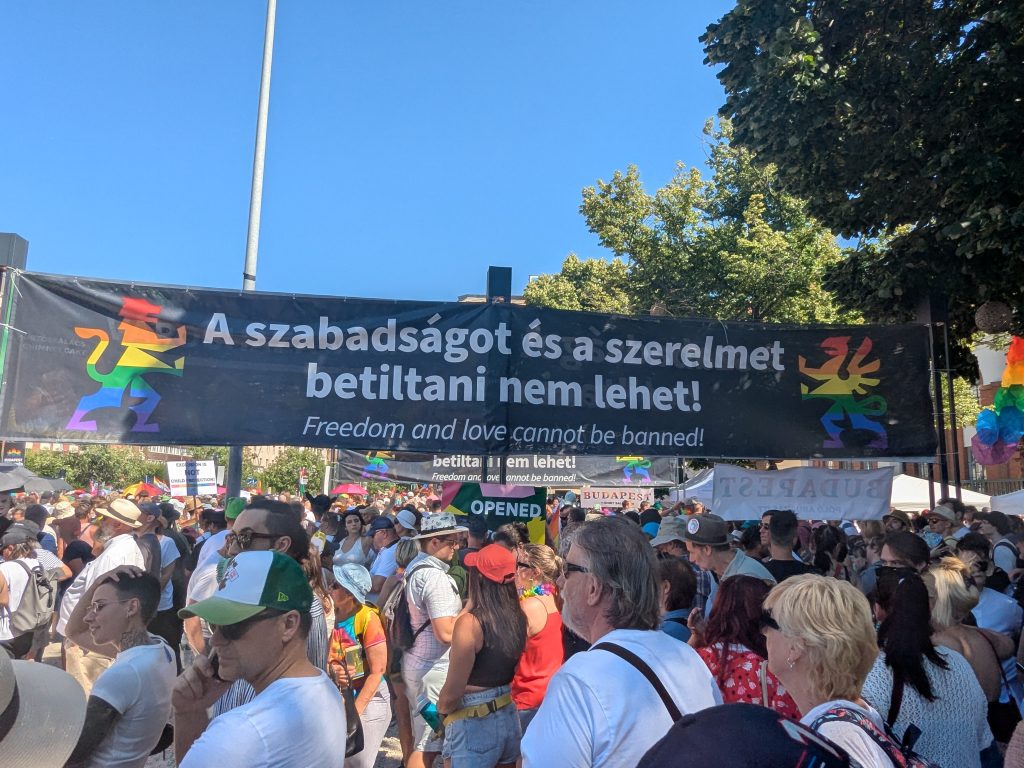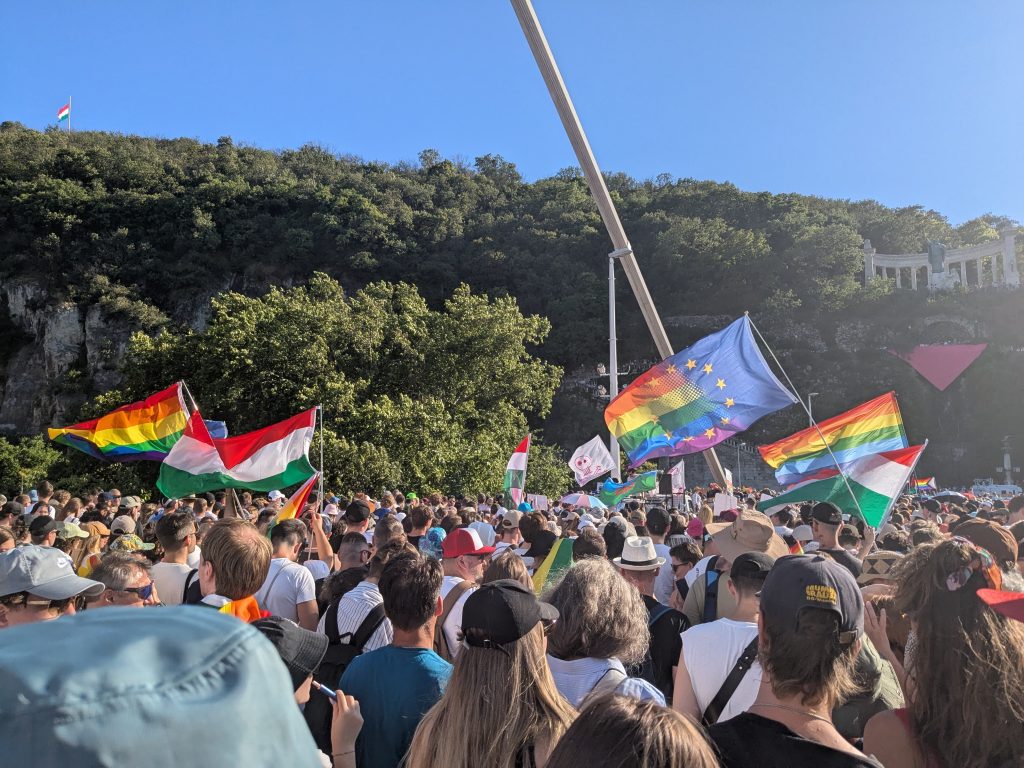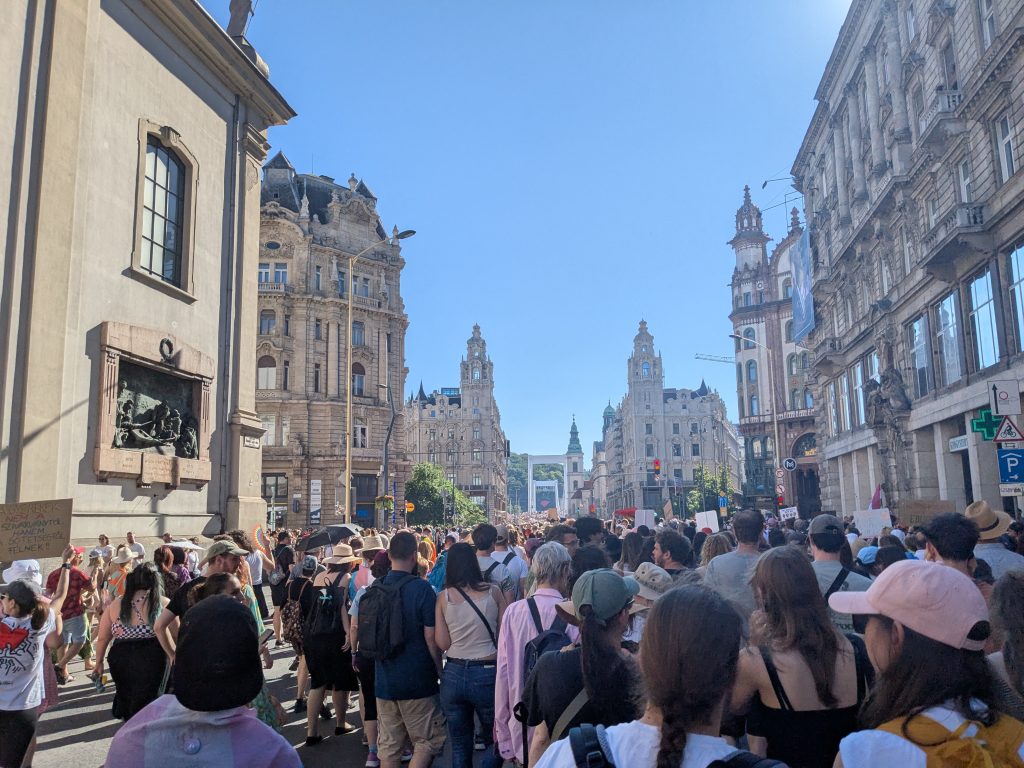Budapest Pride marked its 30th anniversary this year, but the government’s decision to ban the event in March cast a sombre sky over such a joyous occasion. For many Hungarians, this was not just an attack on the LGBTQ+ community, but an attack on all of us. The freedom to love who we want and the freedom to express this love through a peaceful gathering is something that cannot be taken away. That is our civil right.
If the government can ban Pride, what will be next?
Attendees of the event were threatened with fines of up to 200,000 Hungarian forints (approximately €500), enforced through facial recognition technology. This is something that many Hungarians simply cannot afford to pay. The police also denied to give permission for the event, due to the government ban. However, Gergely Karácsony, the mayor of Budapest, came up with a solution: relabelling Pride as a municipal event, meaning that it didn’t require a permit. This made sure no one had the legal grounds to stop it from happening.
But either way I was sure about one thing – I was going to be there.
When I reached the meeting point on Saturday 28 June, which was a warm, sunny day, I couldn’t see the start of the march due to the sea of people buzzing on the street. There was a sense of joy and togetherness, something that reassured me. I knew this is where I belonged.
As I was waiting for my friends, I started to talk to Bea, 52, a mother of four, who came to Pride to protest against the government and fight for her children’s future. “One day we exclude one group of people, the next day another, then a third, and eventually we are going to end up with a yellow star again. I’m really afraid of that,” she said. “I want a future for my children where they can live freely.”
“I feel hopeless, absolutely hopeless,” she added. “I have this secondary embarrassment that the people I voted for, the ones I once believed in, led the country to where it is now. I am embarrassed to be living among people who think this way.”
These same thoughts have been lingering in my own mind for years. I keep asking myself: how can so many people vote for this government? Is it their lack of compassion? Or is it just propaganda tainting their views?
But as I was standing at Deák Ferenc square, surrounded by thousands of people who chose to show their resistance that day, something started to shift in me.

Photo by Anna Péter
When the crowd walked down Károly körút and passed a facial recognition camera, a man in his fifties jokingly shouted at it: “Take me to prison, take me to prison.” His defiance and total absence of fear of the consequences was infectious. It inspired me and made me so proud to be standing alongside him and others.
The march was originally heading to the Freedom Bridge but the far right party, Mi Hazánk (Our Homeland Movement) had blocked it, leaving us with no choice but to reroute and go across the Elisabeth Bridge instead.

Pride marchers walking over Elisabeth Bridge. Photo by Anna Péter
During the walk, I met Orsi from Budapest, who said she wants to live in a country where she can exercise her basic human rights, such as the right to free assembly. “Everyone is equal, regardless of their gender or religion. I came here today to support the LGBTQ+ people but if any other group of people were banned from marching, I would still be here.”
Orsi recently attended a demonstration against the abolition of the right to assembly where police shouted into her ear with a megaphone. “I didn’t feel safe, even as a peaceful protestor,” she said. “I am afraid not only of the fine that I can get but also how the police may react today.”
She is not alone in this fear. Even the day before Pride, I kept thinking about the worst-case scenario: what if the police acted irrationally? What if counter protestors turned violent? What if the whole Pride just got out of hand?

Photo by Anna Péter
I believe these are all valid questions many of us have asked ourselves but as we marched forward and saw no police or any kind of violent interference in this peaceful protest, these questions seemed like a distant memory.
As we approached Műegyetem, our final destination, Hungarian actors and entertainers made sure that the atmosphere didn’t fade and kept the energy going.
Armand, 15, another marcher from Sopron in western Hungary, said that although he had never been to Pride before, he felt that the growing hatred must stop. “We have to stand up for minorities and for Hungarians in general,” he said.
He continued: “I really hope people will admit that not everyone is the same and that this needs to be accepted. Everyone deserves to be loved the way they are. I think together we can create a beautiful future for Hungary.”
At the end of this warm summer’s day, Armand’s words echoed in my ears. I felt the wind of change was not a distant idea anymore; it finally felt real.

Photo by Anna Péter






